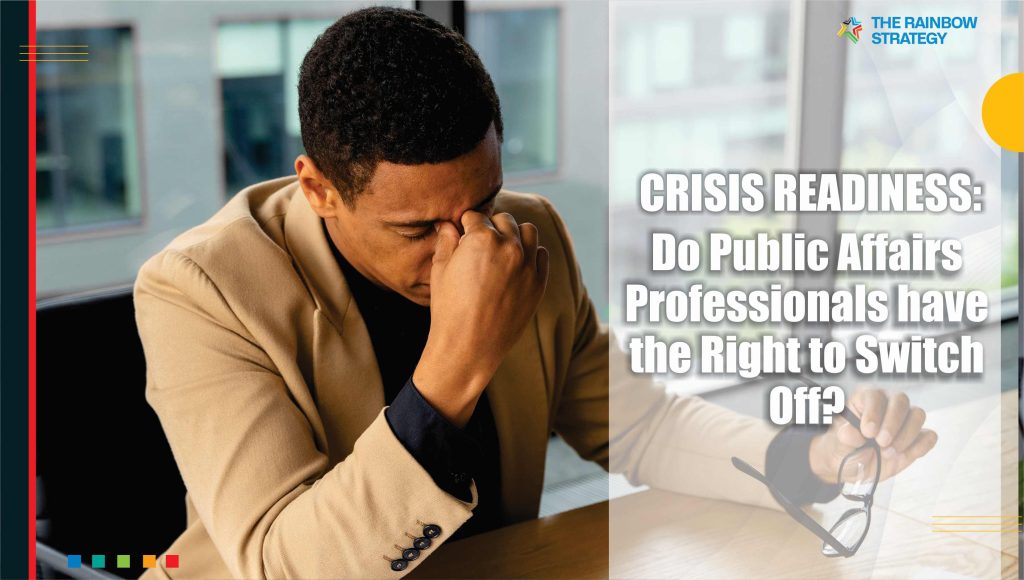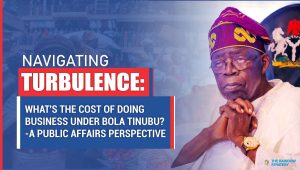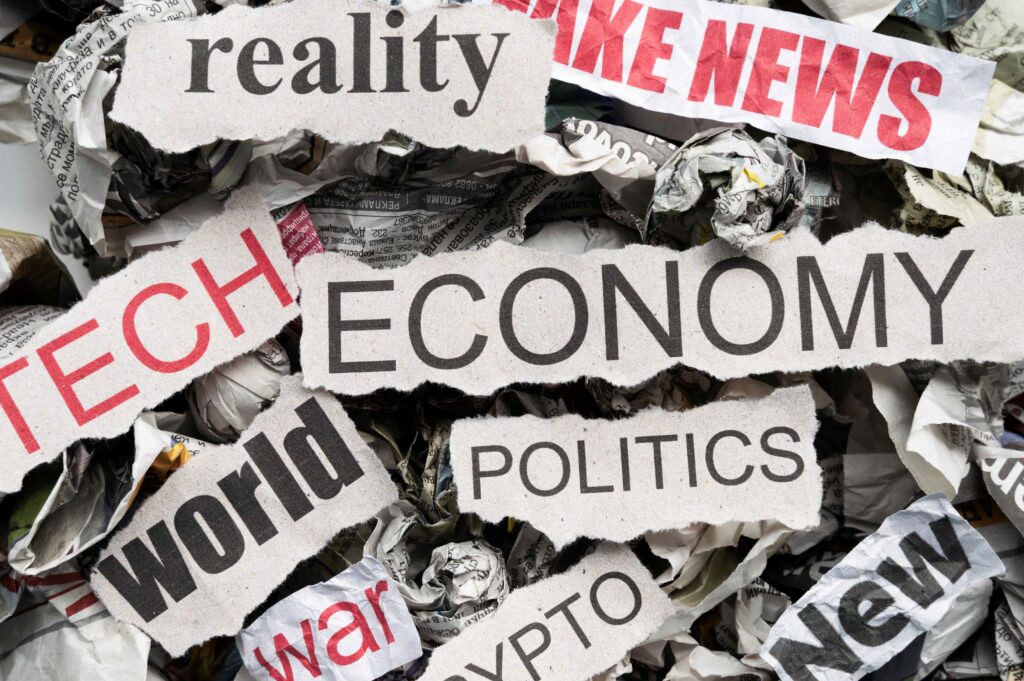Crises can erupt without warning in today’s fast-paced world, turning stable environments into turbulent waters. The role of public affairs professionals as crisis managers is an inevitable part of the job. But what happens when these professionals need a break?
Do they have the right to switch off, even during a crisis?
The Relentless Nature of Public Affairs
Public affairs is a field that thrives on connections, communication, and constant vigilance. Whether it’s navigating legislative changes, managing stakeholder relationships, or responding to public sentiment, the job demands unwavering attention. This is especially true during a crisis when every minute counts, and the pressure to deliver accurate, timely, and strategic communication is immense.
The Human Element
Public affairs professionals are not immune to stress and burnout. The expectation to be perpetually available can lead to physical exhaustion and mental fatigue. Like any other profession, the human element needs to be acknowledged and respected. Continuous exposure to high-stress situations without adequate downtime can impair judgment, reduce productivity, and ultimately affect the quality of crisis management.
The Reality of Switching Off
While the ideal scenario would allow for everyone to have a break, the reality of public affairs is more complex. In a crisis, the luxury of switching off is rarely feasible. The rapid pace at which information flows and the immediate need for responsive action make it challenging for public affairs professionals to disengage, even temporarily. However, this does not mean that they should be constantly on edge, awaiting the next emergency.
Striking a Balance
- Team Dynamics and Delegation: One of the most effective strategies is to build a strong, resilient team where responsibilities can be shared. Delegation is key. By distributing tasks and ensuring that multiple team members are capable of stepping up, the burden on any single individual is reduced. This also fosters a collaborative environment where everyone feels supported.
- Crisis Preparedness: Preparation is the cornerstone of effective crisis management. Having a well-documented crisis plan in place, with clear roles and responsibilities, can mitigate the need for constant oversight. Regular training and simulations can help ensure that team members are prepared to act independently when needed.
- Leveraging Technology: In an era of digital transformation, technology can be a powerful ally. Tools for real-time monitoring, automated alerts, and collaborative platforms can streamline crisis management processes. These technologies can provide critical support, allowing professionals to manage crises more efficiently without the need for round-the-clock presence.
- Mental Health and Wellbeing: Organisations must prioritize the mental health and well-being of their public affairs teams. Encouraging regular breaks, providing access to mental health resources, and fostering a culture that values work-life balance can make a significant difference. It’s essential to recognize that a well-rested professional is more effective than one who is burnt out.
The Organizational Responsibility
Ultimately, the responsibility to ensure that public affairs professionals can manage their workload without reaching burnout lies with the organization. Leaders must be proactive in creating an environment where employees feel they can switch off, when necessary, even if only for short periods. This involves understanding the pressures faced by public affairs teams and implementing policies that promote sustainability.
Conclusion
In the high-stakes world of public affairs, the idea of switching off during a crisis may seem like a distant dream. However, by fostering a supportive environment, leveraging technology, and emphasizing preparation and mental health, organizations can ensure that their public affairs professionals are not only ready to tackle crises but can do so without sacrificing their well-being. In the end, a balanced approach leads to more resilient teams, capable of navigating crises with clarity and composure.








